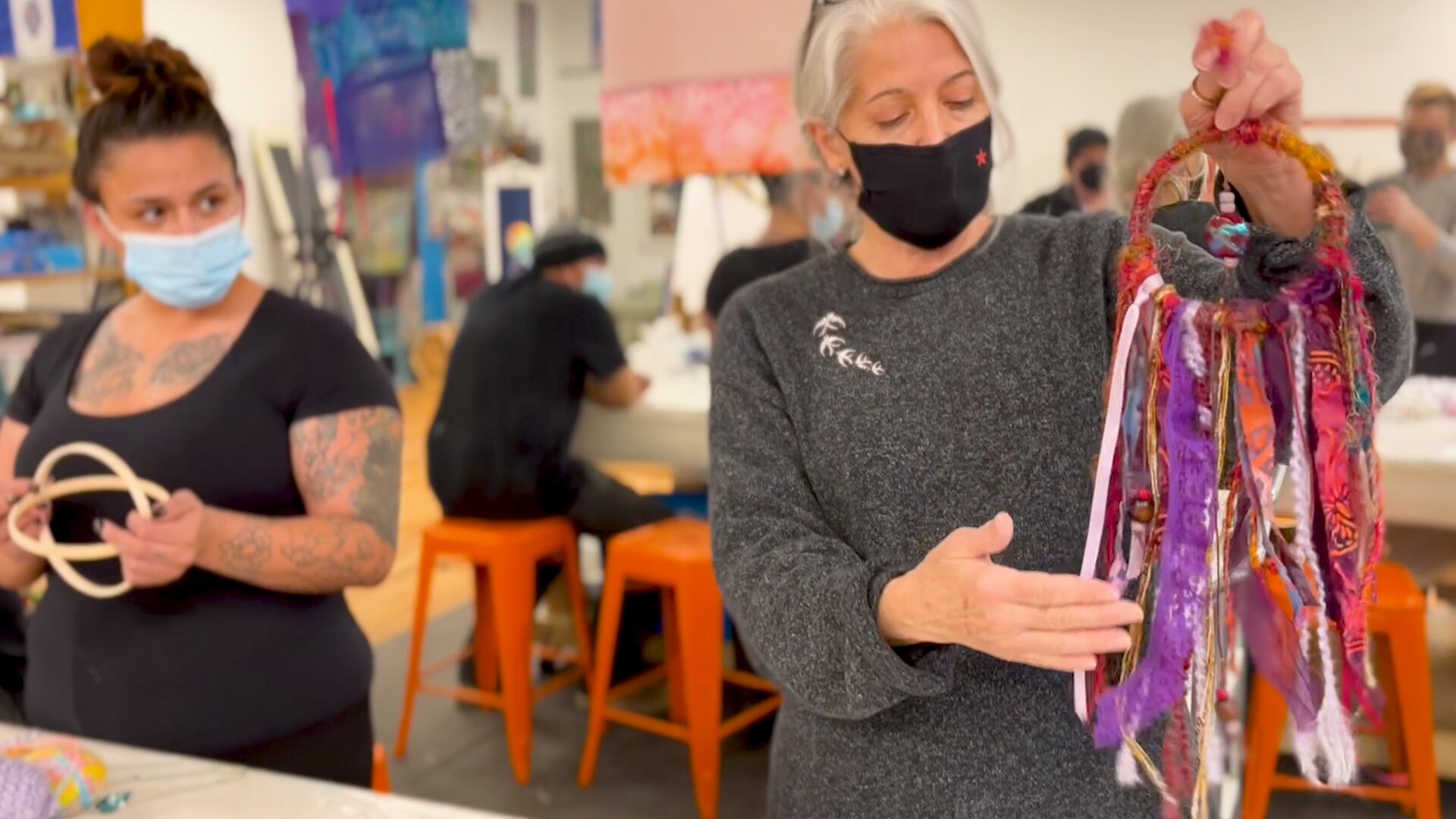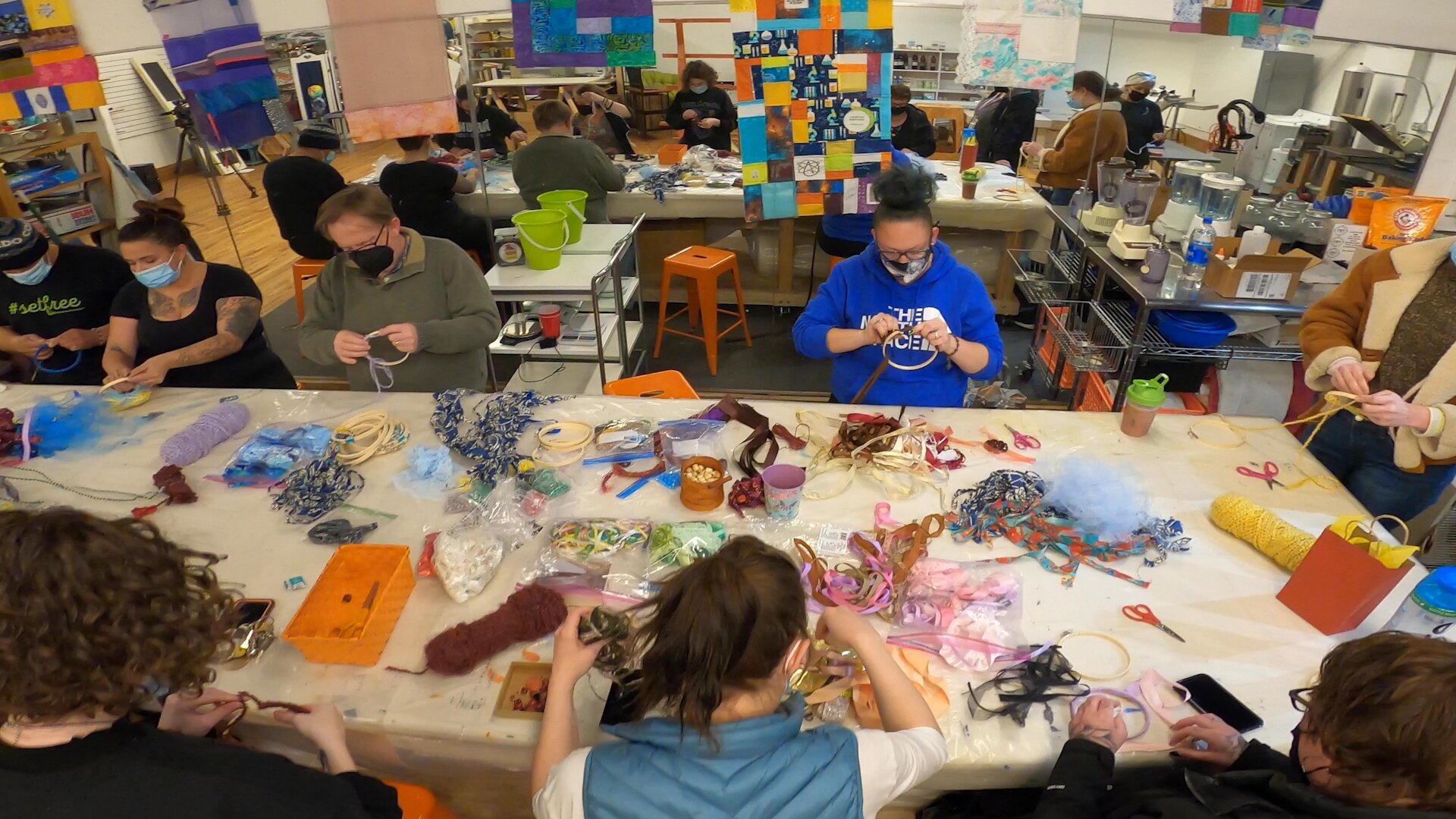Community-based recovery model focuses on creativity

MANITOU SPRINGS, Colo. — When people think of addiction recovery programs, the 12 Steps and Alcoholics Anonymous often come to mind. But Rachel Fowler knows firsthand that one approach doesn’t work for everyone.
Fowler leads Recover the Fun, an informal substance-free recovery group that meets the first and third Wednesday of each month at the Manitou Art Center.
The program is a part of a larger trend of facilitating intentionally sober social environments.
“We’re recognizing the importance of meeting people where they’re at,” Fowler said.
A nonprofit with roots in recovery coaching, Recover Simply hosts music and arts events twice a month at the Manitou Art Center. Here, community members can express creativity in a substance-free environment.
In the toolbox of recovery, “there’s a lot more out there than people think,” said Fowler, who listed in- and out-patient treatment, sober living environments, Buddhist and science-based approaches to regular meetings, moderation management, activity and athletic-based groups, and more.
When dreaming of facilitating her own brand of creative, substance-free community connection, “I just felt there should be more options for people,” Fowler said.
The concept for Recover the Fun came to Fowler during a walk throughout downtown Manitou Springs in 2019.
“I stopped at my friend’s shop where he was doing crafts and told him it would be the perfect place to host a recovery group and do something creative. He said yes,” Fowler said.
Early in her own recovery, Fowler felt there was “a little too much talk of deficits and defects. I wanted to talk about what’s right with us,” she said.

“Addiction is classified as a disease, but we don’t treat it like a disease. We treat it as a moral failing,” said Fowler. “And there’s so much stigma that comes from that, that it’s hard for people to show up and ask for help.”
“To work with us, you can be in recovery from anything — even just life,” Fowler said. “Just talking about recovery makes it a lot less stigmatizing.”
Last year, Fowler and Recover Simply received a Manitou Springs Arts, Culture and Heritage Initiative grant through a new cultural tax that supports the mainstay of the local arts community. In its first partial grant cycle in 2021, a committee overseeing the voter-approved .3% sales tax awarded $55,000 in local arts funding, with most grants in the $2,000-5,000 range. For Fowler, this money allows the program to pay for artists’ time and supplies needed.
On the evening of January 19, local artist artist Gretchen Vonderlandwehr led participants through fabrication of a decorate wall hanging. Recover the Fun has also offered instruction in pottery, jewelry making, and the healing arts.
“The instructors are all Manitou Springs artists, so the money is going back into the community,” Fowler said.
In addition to offering hands-on activities, “a lot of really good friendships” have blossomed through the program, Fowler said.

“It’s like a little family,” said Nic, a participant in Recover the Fun. After being released from jail almost a year ago with nothing but the clothes on his back, Nic says he knows what it is like to start over from scratch. “People in recovery have fought their way up,” he said. “They are some of the strongest people you’ll ever meet.”
Each Recover the Fun artistic session is free and open to any community member. “We’re trying to remove barriers,” said Fowler.
Nic credits Fowler’s support and community programming as a guiding force in his recovery.
“Rachel to me is a friend, a mentor, a teacher, and someone who makes recovery fun,” said Nic. “These are people I’ve grown with, I’ve changed with, that I’ve seen grow. They’ve helped me up when I’ve cried and been there while I laughed.”
“We’re all different walks of life, and we’ve all had out stories,” said Natasha, a participant in Recover Simply’s monthly gatherings. “We’re a big community that help each other and support each other going through tough times in life. Without that, there would be a struggle."
The goal, Fowler said, is for folks to leave feeling just a little healthier.
“The opposite of addiction is connection,” said Fowler. “That connectedness to community is what really helps people maintain long-term recovery.”
Kate Perdoni is a multimedia journalist with RMPBS and can be reached at kateperdoni@rmpbs.org.
